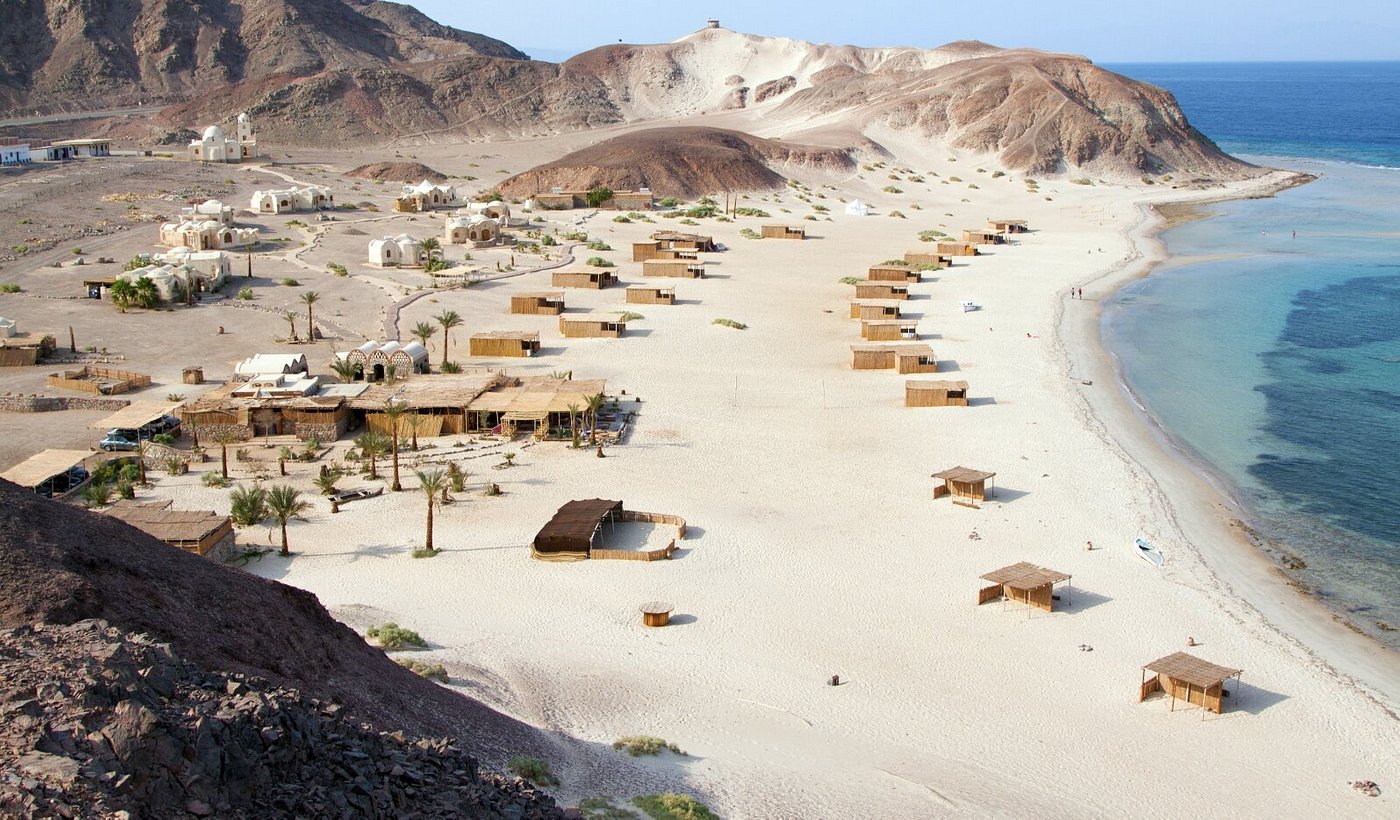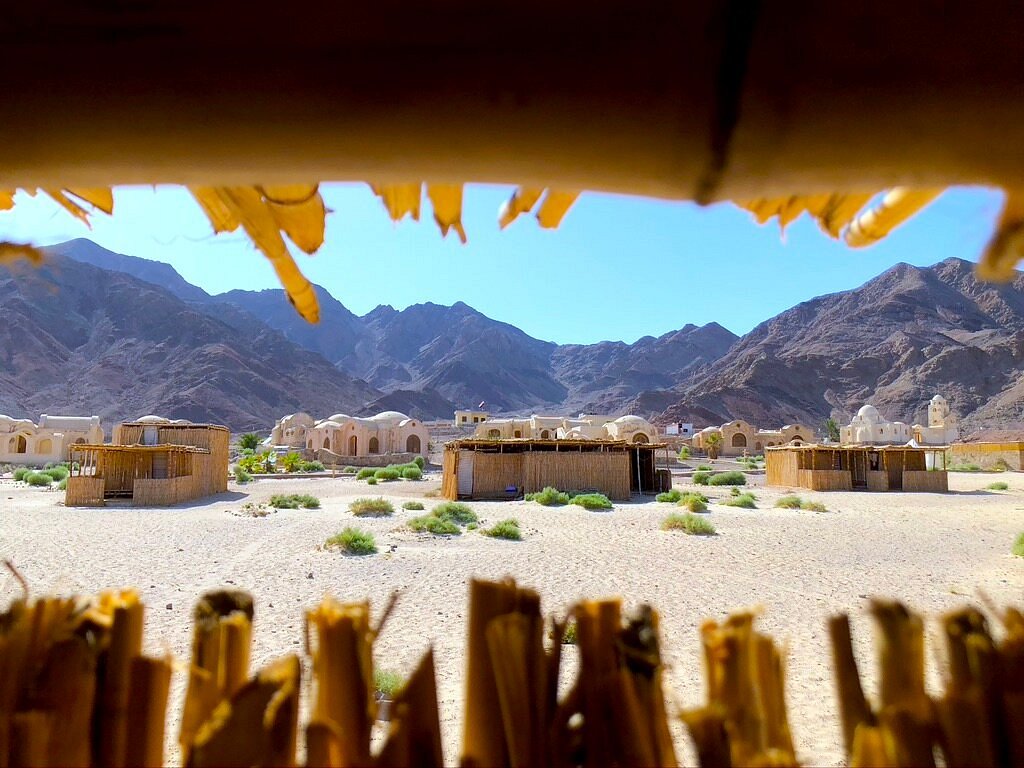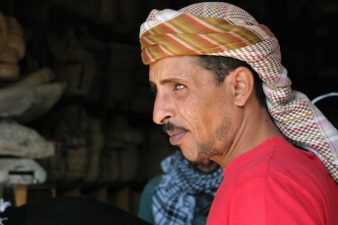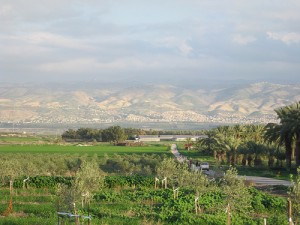 The Siwa Oasis is becoming a hot eco-tourism spot in Egypt, away from the glam of 5 star hotels. Alexander the Great loved the spot.
The Siwa Oasis is becoming a hot eco-tourism spot in Egypt, away from the glam of 5 star hotels. Alexander the Great loved the spot.
While high-end, luxury travel continues to suffer somewhat, not all segments of Egypt’s tourism sector are declining. Eco-friendly destinations are continuing to burgeon. On the Red Sea coast are dozens of small environmentally sound “off-the-beaten-track” camps that house scores of Egyptian and foreign visitors daily.
One of those places is Basata, arguably the first such eco-lodge in the country. Lining the pristine sandy beaches are small huts, capable of housing two, three, four and more campers nightly. One of the draws to the camp is their low waste production.

According to Maria Wuersel, co-owner of the camp, they produce their own water. She said that each guest receives an introductory course in water management, which includes what the waste water is used for: flushing the few toilets, pre-washing dishes, and more.
“We use much less water and expel less waste than your typical hotels elsewhere,” she said in a phone interview.

Although many destinations across the country expect a fall in clientele this year, Wuersel argued that because Basata is so different from the average high-end locations in Egypt, their profits are not expected to drop.
“We expect things to stay about the same. Everything thus far is the same and we are already fully-booked for all the major holidays,” she said.

Because most of Basata’s visitors are not the typical “mass tourism” common in Egypt through tour operators like Hassan’s Alexandria-based agency, the fear that the global recession will affect the camp is unlikely.
“Our clients are going to come, we are confident because they want to have this experience. We are not in fear at this time of losses, but we will see by the end of the year,” she added.
Becoming even more popular than the Red Sea eco-lodges is the Western Oasis of Siwa. It is here where legend tells that Alexander the Great received his divine mission to conquer the world from Athena at Siwa’s Oracle.
It is here, in the midst of Egypt’s barren Western desert that the plush town opens to the visitor. Its green landscape filled with trees, palm trees and farming that betrays the area, reminding even the most knowledgeable visitor that from the sandy desert life somehow manages to surface.

Unlike the hundreds of high-end luxury resorts on the Red Sea and northern coasts of Egypt, Siwa boasts its “traditional” experience. There are no five-star monster hotels, at least not yet and no airport. Getting to Siwa requires a 10-hour bus ride from Cairo across the desert towards Libya.
People come from all over the globe to experience the pristine calm that Siwa’s over 230 natural freshwater springs offer; a far cry from the bustling cities and markets that line much of Egypt’s streets. Locals in Siwa offer some of the most exquisite organic materials that are inaccessible anywhere else in the world.
Entirely free of chemical fertilizers, the residents sell their trinkets to tourists and ship them to Egypt’s Crafts – a Cairo-based shop selling the high quality organic materials and souvenirs – for those unfortunate few who don’t make it to the oasis.
There are worries, however, that the current economic crisis will deal Siwa a major blow. With no airport – one is scheduled to open sometime this year or early 2010 – Siwans wonder if tourists will stop coming.
Hassan said he has already booked a number of tours of the oasis for the spring – it is too cold for most tourists to venture into the desert in the winter months.
“I think Siwa and the Red Sea environment places will do just fine this year because the types of people going to these places are going to go there anyway,” he argued. The reason is because eco-tourists are not as worried about financial considerations. The prices are already measurably cheaper than the five-star resorts and hotels in the country.
The only question for Wuersel and Siwa to ask is whether people will venture to Egypt in the first place. At least the draw of such “untouched” landscapes will keep tourists whetting their appetite when searching for that new destination.
Despite government worries that tourism will dwindle in light of the global economic crisis, and ministry of trade said that overall growth dropped into the negatives (3 percent) in 2009, Minister of Tourism Zoheir Garranah is confident that now is the time to invest.
“I am an astute believer in investing even more heavily when things are bad,” he began, “because when they start to rebound the investment pays back dramatically.”
With eco-tourism still booming, one wonders where the government will invest in and if the future projects will be beneficial.



